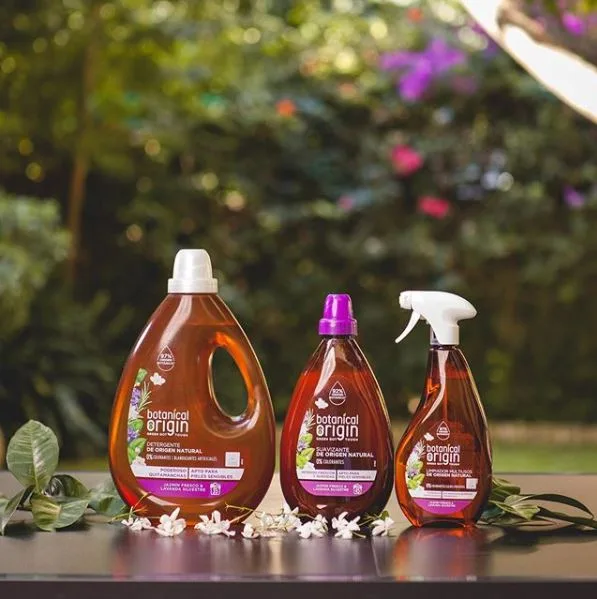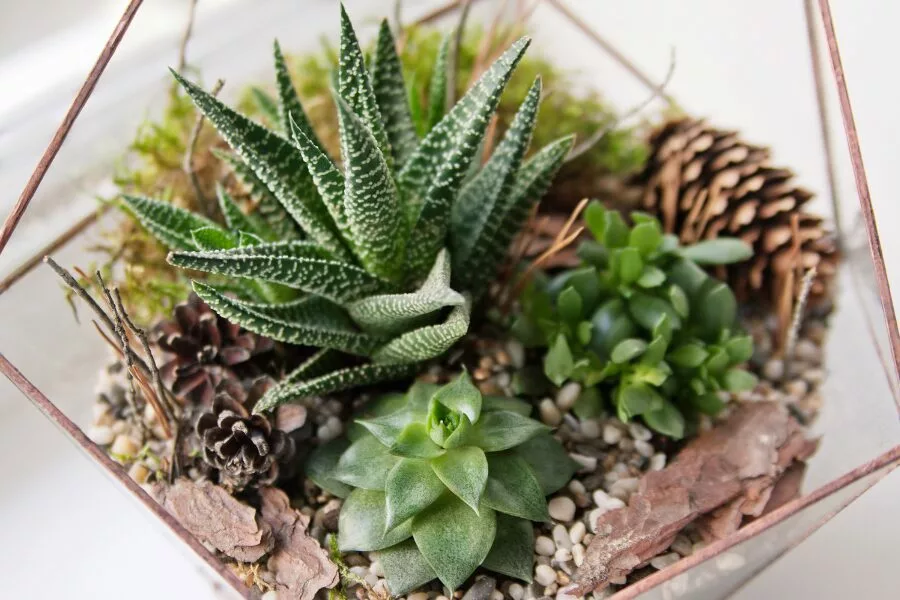Are those adorable chipmunks wreaking havoc on your garden? You’re not alone! These little critters can cause quite a nuisance for gardeners, digging up plants, and gnawing on roots and bulbs. But worry not! We’ve got the best chipmunk repellents to help you reclaim your garden. There are natural solutions like certain plants and essential oils, plus homemade remedies and effective commercial products, to help you keep these cute yet pesky animals at bay.
Our solutions will help you go green with eco-friendly methods, while also leaving you a few recommendations for commercial repellents, just for that extra punch. Here’s everything you need to know about how to get rid of chipmunks, how to protect your garden with plants that naturally deter chipmunks, creating homemade chipmunk repellent and chipmunk repellent sprays, and the top-rated products you can buy online.
Say goodbye to chipmunk troubles and hello to a thriving, beautiful garden!
Understanding the Chipmunk Problem
Chipmunks may be cute, but their digging and gnawing can wreak havoc on your garden. Did you know that these small creatures can dig extensive burrows, uprooting plants, and damaging roots?

Quick Facts:
- Expert Diggers: Chipmunks can burrow up to 30 feet, creating complex underground networks.
- Destructive Eaters: They love to gnaw on garden bulbs and roots, often causing irreversible damage.
- Fast Reproducers: A single chipmunk can produce two litters of four to five young each year, rapidly increasing their population in your garden.
Mary, one of Ecowiser’s loyal reader from Wisconsin, is a passionate gardener who found her blooming tulips devastated by chipmunks overnight. She tried everything but found the solution in natural repellents and homemade chipmunk repellents. Mary’s story is not unique—many gardeners face similar challenges. But with the right strategies, you can protect your garden from these persistent pests and enjoy your beautiful plants without worry.
Natural Chipmunk Repellents
Let’s start with nature’s own solutions! Why not use what Mother Nature provides, right? Here’s how to get rid of chipmunks naturally:
Plants that Repel Chipmunks
Certain plants can naturally deter chipmunks. Daffodils, garlic, and marigolds have strong scents that chipmunks dislike, making them great chipmunk repellent plants. Planting these chipmunk repellent plants around your garden can create a natural barrier. Daffodils, with their bright blooms, add beauty while keeping pests away. Garlic’s potent smell is off-putting to chipmunks, and marigolds add a colorful, protective border. You might need to plant these around fruits like pineapples, since chipmunks love to get to them!

Essential Oils
Peppermint, garlic, and cinnamon oils are excellent natural repellents. Mix a few drops of these oils with water and spray around your garden. The strong scents will deter chipmunks without harming your plants. For a simple recipe, combine 10 drops of peppermint oil with a cup of water and a few drops of dish soap. Shake well and spray the mixture where chipmunks are active.
Home Remedies
Simple and effective home remedies can also keep chipmunks away like chipmunk repellent sprays. Sprinkling cayenne pepper or crushed red pepper flakes around your garden beds can deter chipmunks. They hate the smell and taste, making these spices a natural repellent. You can also create a mixture of water and vinegar, spraying it around your garden to keep these pests at bay.
Using these natural solutions like chipmunk repellent plants, you can protect your garden without resorting to harsh chemicals, ensuring a safe and eco-friendly approach to pest control.
DIY Chipmunk Repellents
Ready to get crafty? Here’s how to get rid of chipmunks with some simple and effective DIY solutions that will keep chipmunks out of your garden, inspired by real-life success stories! Check out our recommendations for homemade chipmunk repellents:
Essential Oils

Essential oils like peppermint, citrus, cinnamon, and eucalyptus can work wonders in deterring chipmunks. Mix a few drops with water in a spray bottle and apply around your plants. Remember to reapply frequently, especially after it rains.
Scatter Hair Clippings

Using hair clippings may sound strange, but it can repel chipmunks effectively. Scatter the clippings around your garden, particularly in targeted areas. Keep a steady supply of hair to reapply regularly, as the scent diminishes over time.
Sprinkle Coffee Grounds

Coffee grounds not only deter chipmunks but also enrich your soil. Sprinkle them around your most precious plants to keep the critters at bay. This method is simple and utilizes something you might already have plenty of.
These DIY repellents are not only effective but also safe for your garden and the environment. You can use these everyday household items and simple strategies to protect your plants from chipmunks without resorting to those horrid harsh chemicals.
How to Keep Chipmunks Away: Effective Strategies for a Chipmunk-Free Yard
Chipmunks, while cute and entertaining to watch, can become a nuisance when they invade your garden, dig up your flower beds, or chew on your house’s wiring. Here are some effective strategies to keep these small critters at bay.
Secure Your Home
Start by ensuring that your home is sealed off from any potential chipmunk entry points. Check for and repair any cracks or gaps in your foundation, windows, and doors. Use weather stripping and caulking to seal these openings and prevent chipmunks from finding their way inside.
Use Natural Repellents
Several natural repellents can help deter chipmunks from your yard. Sprinkling substances like cayenne pepper, garlic powder, or crushed red pepper flakes around your garden can make the area less appealing to chipmunks, serving as the best chipmunk repellent home remedy. You can also make a chipmunk repellent spray mixture of water and these ingredients to apply directly to plants and soil.
Install Fencing
Erecting a fence around your garden can be an effective physical barrier against chipmunks. Ensure the fence is at least a foot deep underground and has small mesh openings to prevent chipmunks from squeezing through or burrowing underneath.
Pay Attention to Bird Feeders

Chipmunks are often attracted to bird feeders. Relocate feeders to areas less accessible to chipmunks and clean up spilled seeds. Consider switching to thistle seed, a chipmunk repellent home remedy which chipmunks dislike, and use baffle guards to prevent them from climbing to the feeders.
Modify Your Yard
Habitat modification is an effective chipmunk repellent home remedy. Remove debris piles, avoid stacking wood against your house, and eliminate ground cover that provides shelter for chipmunks. By reducing their hiding spots, you make your yard less inviting.
Mark Like a Predator
Using predator urine, such as fox, raccoon, or coyote urine, can be a humane way to deal with chipmunks. Apply a few drops around their burrows and in areas where you frequently see chipmunks. Always wear gloves and follow handling instructions for safety.
Commercial Best Chipmunk Repellents to Buy Online
Sometimes, you need a little extra help. Here are some top-rated products to consider:

Ingredients: Plant-based, non-toxic.
Application: Spray bottle for easy use.
Safety: Suitable for use around children and pets.
Function: Intended to deter squirrels and other small rodents.
Duration: Offers protection with regular application.
Ksqurelnb Squirrel Repellent Spray offers a plant-based, non-toxic option for those looking to manage squirrel activity in their gardens. This spray is designed to create an invisible barrier around plants and affected areas. It is safe for use around children and pets.

Technology: Uses ultrasonic sound waves.
Power: Solar-powered.
Design: Weatherproof for outdoor use.
Coverage: Designed to cover large areas.
Safety: Non-toxic and harmless to animals and humans.
The PREPELLITY Ultrasonic Animal Repellent utilizes high-frequency sound waves to help manage pests such as squirrels, raccoons, and deer. Designed for outdoor use, this outdoor chipmunk repellent is weatherproof and solar-powered, eliminating the need for an external power source.

Ingredients: Biodegradable, non-toxic.
Usage: Sprinkle around gardens and problem areas.
Safety: Safe for pets and children.
Effectiveness: Provides ongoing protection with regular use.
Application: Suitable for gardens, flower beds, and lawns.
Two Bros. Repellent Granules are created to manage the presence of squirrels, chipmunks, and other rodents in gardens. The outdoor chipmunk repellent granules are made from biodegradable, non-toxic ingredients and are safe for use around pets and children.

Power Source: Solar-powered.
Mechanism: Uses ultrasonic sound and LED lights.
Activation: Motion sensor activated.
Durability: Weather-resistant design.
Safety: Non-toxic, safe for humans and animals.
The ASEINT Solar Ultrasonic Animal Repellent combines ultrasonic sound and flashing LED lights to help manage animal activity in gardens. This chipmunk repellent sound solution is solar-powered and features a motion sensor for activation. The chipmunk repellent sound device is weather-resistant and designed for outdoor use.
Why Should We Get Rid of Chipmunks Sustainably?
Dealing with chipmunks in your garden or home can be challenging, but it’s important to address this issue in a sustainable and humane way. That’s why we showed you how to get rid of chipmunks humanely like using chipmunk repellent sprays. Here are several reasons why sustainable methods are crucial:
Environmental Impact
Traditional pest control methods often rely on chemical repellents and poisons, which can have significant negative impacts on the environment. These chemicals can contaminate soil and water sources, harming not just chipmunks but also other wildlife, plants, and even pets. Sustainable methods, such as using natural repellents and habitat modification, minimize environmental harm and help maintain the ecological balance.
- Chemical-Free: Sustainable methods avoid harmful chemicals that can contaminate the environment.
- Eco-Friendly: Natural repellents and humane traps are less disruptive to the ecosystem.
Protecting Biodiversity
Chipmunks are a part of the local ecosystem and play a role in the biodiversity of the area. Using sustainable methods to manage their population ensures that we are not completely eradicating a species that might have beneficial roles, such as seed dispersal and providing prey for predators. Maintaining biodiversity is essential for a healthy and resilient ecosystem.
- Balance: Sustainable control methods help maintain the natural balance of the ecosystem.
- Biodiversity: Protecting chipmunks as part of the local wildlife community.

Humane Treatment
Sustainable pest control emphasizes humane treatment of animals. Chipmunks, like all creatures, deserve to be treated with respect and compassion. Using humane traps and natural repellents allows us to manage chipmunk populations without causing unnecessary suffering.
- Humane Methods: Traps and natural repellents are kinder alternatives to lethal control methods.
- Ethical Responsibility: Treating animals with respect and compassion.
Long-Term Solutions
Sustainable methods often provide long-term solutions by addressing the root causes of the problem. For example, modifying the habitat to make it less attractive to chipmunks can provide a lasting solution rather than a temporary fix. Sustainable practices focus on prevention and long-term management rather than repeated short-term interventions. As you keep reading, we’ll also tell you how to get rid of chipmunks using traps or repellants.
- Prevention: Sustainable methods focus on preventing issues before they arise.
- Long-Term: Creating lasting solutions that reduce the need for ongoing control measures.
Health and Safety
Using natural and sustainable methods like the best chipmunk repellent sound devices to control chipmunks can also be safer for humans. Chemical pesticides and poisons can pose health risks to humans, especially children and pets who might come into contact with these substances. Natural repellents and physical barriers are safer alternatives that reduce the risk of exposure to harmful chemicals.
- Safety: Reduces the risk of exposure to harmful chemicals.
- Health: Safer for children, pets, and homeowners.
Preventive Measures and Tips
Taking preventive measures is essential in protecting garden from chipmunks and making it less attractive to them. Implementing the following tips can help create an environment that discourages chipmunks from settling in your yard.

Garden Maintenance
Regular garden maintenance is key to deterring chipmunks and protecting garden from chipmunks. Keep your garden clean and free of debris, as chipmunks are less likely to burrow in well-maintained areas. Remove fallen fruits, nuts, and seeds that may attract chipmunks, and regularly mow your lawn to reduce hiding spots. You can also install some solar outdoor lights to keep a better eye on your garden and watch out for chipmunks coming your way. Better yet, a chipmunk repellent sound device like the one we suggested above will help!
- Clean Garden: Remove debris, fallen fruits, and nuts.
- Regular Mowing: Keep grass short to eliminate hiding spots.
Using Traps and Repellents Together
If you’re wondering how to get rid of chipmunks using traps or repellants, consider combining traps with chipmunk repellent natural. Humane traps can be used to capture and relocate chipmunks away from your property. Pairing traps with repellent sprays or devices can enhance your efforts by ensuring that chipmunks do not return.
- Humane Traps: Capture and relocate chipmunks.
- Combination Approach: Use traps in conjunction with repellents for maximum effectiveness.
Summing Up!
In short, effective chipmunk control involves a combination of natural, homemade, and commercial repellents, along with consistent garden maintenance. Using repellent sprays like “Critter Ridder” and “Repels-All,” planting chipmunk-deterring vegetation, and employing ultrasonic devices are all effective strategies. We also recommend keeping your garden clean and combining traps with repellents to further ensure a chipmunk-free environment.
Are you ready to reclaim your garden? Start with these tips today and watch your garden thrive, free of invasion. By implementing these strategies, you can protect your wonderful plants and maintain a beautiful, chipmunk-free garden!
Frequently Asked Questions
Why are chipmunks a problem in my garden?
Chipmunks can cause significant damage by digging extensive burrows, uprooting plants, gnawing on bulbs and roots, and eating nuts and fruits. They are attracted to gardens that provide food, water, and shelter, which is why we suggest natural squirrel & rodent repellent to protect your garden.
What are some natural ways to repel chipmunks?
Chipmunk repellent home remedy includes certain chipmunk repellent plants and animal & rodent control like daffodils, garlic, and marigolds that chipmunks dislike, as well as essential oils (peppermint, citrus, cinnamon, eucalyptus) that can be sprayed around your garden.
How do essential oils work to deter chipmunks?
Essential oils have strong scents that chipmunks find unpleasant. Mixing a few drops of essential oil with water and spraying it around your plants creates a natural barrier that repels chipmunks, making it a chipmunk repellent natural.
Can hair clippings really repel chipmunks?
Yes, hair clippings can be an effective squirrel & rodent repellent because they carry a human scent that chipmunks find threatening. Scattering hair around your garden can help deter these critters, but this animal & rodent control requires regular reapplication.
Are there any household items that can repel chipmunks?
Yes, homemade chipmunk repellents like coffee grounds and cayenne pepper are effective household items. Sprinkling coffee grounds or cayenne pepper around your plants can keep chipmunks away due to their strong scent and taste.









